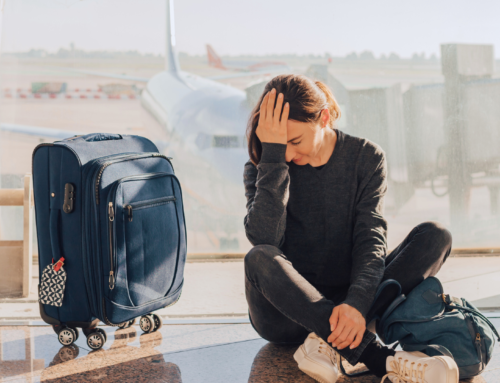Traveling can be an exhilarating experience, but it also comes with its share of pitfalls. Many travelers encounter common travel mistakes that can detract from their adventures or lead to unnecessary stress. Recognizing these missteps is crucial for anyone planning a trip, whether for business or leisure, especially when navigating the complexities of international travel.
From forgetting essential documents to underestimating costs, these mistakes can significantly impact the quality of a trip. Travelers should be aware of proper preparation techniques and practical tips that can prevent such errors. Addressing these common travel mistakes helps ensure a smoother and more enjoyable journey.
By equipping oneself with knowledge about the typical missteps that many face, they can approach their travels with greater confidence and ease. Being aware of these mistakes not only enhances the travel experience but also allows for more enriching encounters during their adventures.
Essential Pre-Travel Planning
Effective trip preparation is crucial for a seamless travel experience. Key aspects include securing necessary documents, ensuring health precautions, and financial readiness.
Missing Visa Requirements and Important Documents
Travelers often overlook specific visa requirements for their destination. It is vital to research entry regulations, including visa types, processing times, and any fees.
Essential documents such as a valid passport, confirmed itinerary, hotel reservations, and travel insurance information should be gathered before departure.
If applicable, additional papers like invitation letters or residency permits may be required. Creating a checklist can simplify the process and ensure no critical documents are forgotten.
Neglecting Travel Insurance and Health Preparation
Travel insurance protects against trip cancellations, medical emergencies, and unexpected occurrences. Selecting the right policy involves comparing coverage options and costs, including medical expenses and evacuation.
Health preparation is equally important. Visiting a travel clinic for necessary vaccines and medications tailored to the destination is recommended. Depending on the region, vaccines like Hepatitis A, Typhoid, or Malaria prophylaxis may be required.
Keeping a record of vaccinations and carrying necessary prescriptions can prevent health issues while traveling.
Failing to Notify Your Bank and Confirm Credit Card Coverage
Travelers must inform their bank and credit card companies of their travel plans. This step prevents accounts from being flagged for fraudulent activity, which can lead to unusable cards during a trip.
It is also crucial to confirm international coverage. Not all cards offer the same benefits abroad, and understanding fees related to foreign transactions or currency exchanges can help manage a budget effectively.
Having some local currency on hand is advisable for small purchases or tips, especially in places where cards may not be accepted.
Packing and Baggage Mistakes
Travelers often struggle with effective packing and securing their luggage. Mistakes related to packing can lead to stress and inconvenience during trips.
Overpacking and Ignoring Packing Checklists
Many travelers tend to overpack, believing that bringing extra clothes or items prepares them for any situation. This can lead to heavy luggage, increased fees for checked bags, and difficulty maneuvering through airports.
Using a packing checklist helps ensure that essential items are included. A typical checklist might feature categories such as clothing, toiletries, electronics, and documents. Packing cubes can also aid in organization and space management, making it easier to pack light.
By minimizing excess items, travelers not only save on baggage fees but also enhance their overall travel experience by moving more freely and efficiently.
Forgetting Essentials and Proper Luggage Security
Forgetting to pack essential items is a common mistake that can cause significant inconvenience. Items like chargers, travel documents, medications, and toiletries can easily slip from the mind during the packing process.
A well-prepared packing list should emphasize essentials to prevent last-minute purchases at inflated prices.
Furthermore, securing luggage is crucial to prevent lost baggage. Travelers should always use sturdy locks and consider tagging bags with contact information. In busy security lines, keeping personal items organized helps avoid forgetting belongings. Taking these precautions can lead to a smoother and more enjoyable trip.
Financial and Currency Pitfalls
Travelers often encounter financial and currency-related challenges while abroad. Awareness of these pitfalls can enhance their travel experience and help them manage expenses effectively.
Relying on Airport Currency Exchange
Exchanging currency at an airport may seem convenient, but it often comes with unfavorable rates. Airports typically charge higher fees and offer poorer exchange rates compared to local banks or exchange services.
Travelers should consider planning ahead by researching rates online before their trip. Using a currency converter app can provide up-to-date information on exchange rates. However, if travelers are in possession of older currency from a previous visit, standard kiosks might no longer accept it. In these instances, looking for a specialized yen coins and banknotes exchange service, for instance, can be important to ensure it is converted into usable, modern cash. It’s also advisable to withdraw cash from ATMs once in the destination country, as they often offer better rates.
Remember to notify the bank about travel plans to avoid unexpected blocks on cards due to foreign transactions. Familiarity with the local currency before arriving can also alleviate confusion during transactions.
Not Understanding Local Payment Preferences
Payment methods vary significantly across countries. Some locales prefer cash transactions, while others are more accustomed to credit or debit cards.
Travelers should investigate local payment customs beforehand. In many countries, small businesses might not accept credit cards, resulting in inconveniences if cash is unavailable.
It is wise to carry a mix of payment options. Using credit cards with no foreign transaction fees can be beneficial for larger purchases. Travelers should also be aware of potential currency conversion fees imposed by their credit card companies when making purchases abroad.
Understanding these preferences can prevent financial misunderstandings and ensure smoother transactions during travels.
Navigating Local Culture and On-the-Ground Preparation
Awareness of local customs and effective use of technology are essential for a smooth travel experience. Proper preparation can significantly enhance enjoyment and reduce the chances of cultural misunderstandings.
Disregarding Local Customs and Tipping Etiquette
Familiarity with local customs is crucial to avoid cultural faux pas. Each destination has unique traditions that can influence interactions. For instance, in Japan, bowing is a sign of respect, while in many Middle Eastern cultures, using the right hand for greetings and eating is important.
Tipping customs also vary widely. In the United States, 15-20% is standard for restaurant service. In contrast, some countries may include service charges. Researching these practices can help travelers show respect and form positive connections with locals.
Skipping Offline Maps and Travel Apps
Relying solely on mobile data can lead to issues in areas with limited connectivity. Downloading offline maps before traveling ensures navigation is accessible without a connection. Apps like Maps.me or Google Maps allow for this feature.
Travel apps can also streamline experiences. For booking flights, using apps can provide timely updates and price alerts. Additionally, language translation apps can assist in communication, making it easier to engage with local culture. Ensuring a robust cell phone plan or Wi-Fi access can enhance the travel experience.
Overlooking Layovers and Downtime
Layovers often present an opportunity rather than a burden. Instead of viewing them solely as waiting periods, travelers can explore nearby attractions if time allows. Researching what’s available in the layover city can maximize this downtime.
For longer layovers, consider booking a lounge pass for comfort. Many airports offer facilities that allow travelers to relax, recharge, and even enjoy meals. Utilizing these moments strategically can lead to unexpected discoveries and enrich the overall travel experience.






Leave A Comment